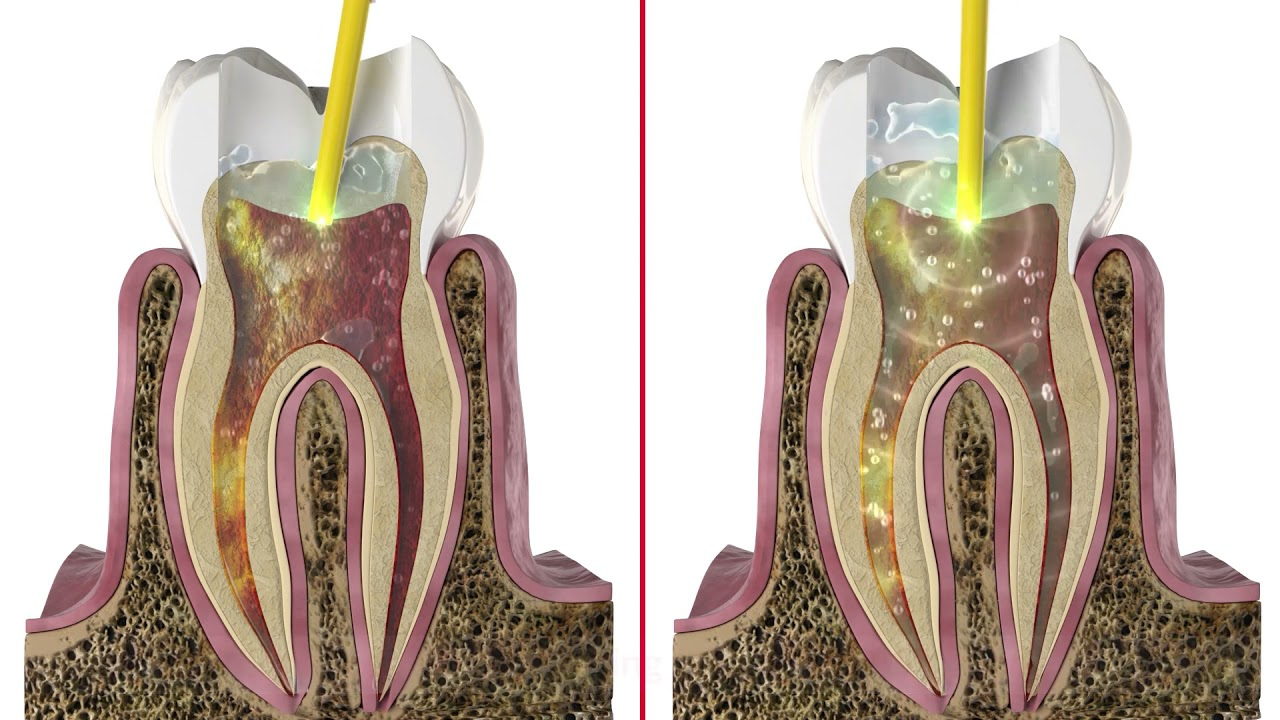
Dedicated to Excellence in Endodontic Care
Our goal is to provide you with the highest quality endodontic care in a compassionate and professional environment. By referring you to our office, your dentist has shown trust in our expertise, and we are committed to exceeding your expectations with exceptional clinical care and personalized attention.

Request an Appointment
Trusted by 1000+ patients
Dedicated to Excellence in Endodontic Care
Our goal is to provide you with the highest quality endodontic care in a compassionate and professional environment. By referring you to our office, your dentist has shown trust in our expertise, and we are committed to exceeding your expectations with exceptional clinical care and personalized attention.

Request an Appointment
Trusted by 1000+ patients
Welcome to Peak Endodontics
Advanced Care in Endodontics with Precision Diagnostics, Gentle Techniques & Personalized Care.
Since 2015

Highly Skilled Team

Cutting-Edge Tech

What to Expect
Your treatment journey is carefully planned to be clear, predictable, and stress-free. From diagnosis to follow-up, we are here to support your healing every step of the way.
Consultation
Before your visit, our team will gather any helpful information from your referring dentist. Once you arrive and check in, we’ll take a 3D high-resolution scan of the area to get a clear view of your tooth and surrounding bone.
You’ll then meet with one of our endodontists, who will listen to your concerns, perform gentle diagnostic tests, and review the scan with you in detail. Based on what we find, we’ll explain your treatment options and create a personalized plan that best fits your needs.
Not every consultation leads to a root canal—sometimes, no treatment is necessary at all.
If you feel anxious about dental visits, we can also discuss medication options to help you feel calm and comfortable during your appointment.
Treatment
To ensure your comfort, we’ll gently numb the area being treated. A small protective barrier called a rubber dam will be placed around your tooth to keep it clean and dry throughout the procedure.
Using advanced technology—including a dental microscope and laser-assisted instruments—we’ll carefully remove any infection and seal your tooth to promote healing.
You can relax during your visit with a cozy blanket, headphones, and, if needed, mild sedation medication to help you feel completely at ease.
Although root canals have a reputation for being painful, modern dental techniques and anesthesia make the procedure virtually painless. Most patients report little to no discomfort.
After treatment, we’ll take follow-up X-rays to confirm the tooth has been properly sealed. You can usually drive yourself home and return to work or normal activities the same day.
After Care
Before you leave, you’ll receive easy-to-follow post-treatment instructions to help ensure a smooth recovery. At Peak Endodontics, you’ll also receive your doctor’s personal cell phone number, so you can text directly anytime with questions or concerns.
It’s normal to experience mild sensitivity or slight swelling for a few days. Your endodontist will explain what to expect and how to care for your tooth as it heals. Be sure to follow all instructions and take any prescribed medications as directed.
To ensure long-term success, it’s very important to visit your dentist for the final restoration—usually a crown. Many root canals fail when this step is delayed, allowing bacteria to leak back into the tooth. Proper sealing by your dentist is essential for lasting results.
Most patients are able to resume normal activities immediately after treatment.
Follow-Up Care
A follow-up appointment is usually recommended 6 months to 1 year after your root canal. During this visit, we’ll take a 3D X-ray scan to evaluate how the roots and surrounding bone are healing. This allows us to confirm that your tooth and tissues are recovering as expected and ensures the long-term success of your treatment.
Our Services
Where Precision Meets Healing

Specialized care to assess, stabilize, and treat dental injuries, helping preserve teeth and restore function after accidents or trauma.

Cracked teeth can cause pain and sensitivity. Early treatment helps protect your tooth and prevent further damage.

We provide specialized care to address complications from a previous root canal, relieve discomfort, and restore your tooth's health and function.

A modern treatment that stimulates natural healing to restore damaged tissues and preserve tooth vitality, helping maintain long-term oral health.

A precise microsurgical procedure used to treat persistent infection at the root tip, preserving your natural tooth when standard root canal therapy isn't enough.

A treatment that protects or repairs the pulp to preserve tooth health, maintain natural function, relieve discomfort, and avoid more invasive procedures.
EDUCATIONAL VIDEOS
Endodontics Made Simple

Root Canal Treatment A Step by Step Guide American Association of Endodontists

Fotona SWEEPS Treatment Animation

Root Canal Retreatment Explained American Association of Endodontists

Fotona SWEEPS Treatment Animation

Apicoectomy (Endodontic Surgery)

Cracked Teeth

Crowns Post and Core Procedure

Periodontal Disease Crown Lengthening

Painless Technology
SWEEPS®
Endodontic Laser Treatment
At Peak Endodontics, you can experience the future of root canal therapy with SWEEPS® laser technology. This state-of-the-art, minimally invasive treatment gently and thoroughly cleans and disinfects even the most complex root canal systems. The result? Greater precision, shorter treatment time, and faster healing with less discomfort—so you can enjoy a healthier smile, sooner.
Request an Appointment
Real People. Real Results.
EXCELLENTTrustindex verifies that the original source of the review is Google. Wonderful office, very friendly staff and amazing doctors! Did my second root canal here, very positive experience. If you need a root canal, come to this nice place! Thank you!Posted onTrustindex verifies that the original source of the review is Google. The most wonderful experience while having a root camel over my bridge. No pain whatsoever. The consultation with Dr. Homa Arzagoon went absolutely amazing. She listened to my concerns, answered all my questions, and showed me what was going to be done during the process. She reassured me all was going to be well, and it was. She is awesome. Dr. Rivera ended during my root canal and I must say I suffered no pain, and he surpassed my expectations. I’ve had root canals done before at other dental clinics and I must say they were a nightmare. I will never go to any other place for root canals if it’s not Peak Endodontics. The staff and the technicians rock! They are so professional, knowledgeable and reassuring. Very customer friendly oriented. I highly recommend this clinic.Posted onTrustindex verifies that the original source of the review is Google. If you need a root canal...this is the perfect practice to have it done. The place looks like a dental spa. The staff are friendly and Dr.Rivera is the BEST! I highly recommend!Posted onTrustindex verifies that the original source of the review is Google. I am a retired general dentist who practiced for 30 years in Cary. I referred my patients who needed endodontic services to Dr. Maresca for approximately 10 years. Her level of technical skill and empathy is IMHO unsurpassed. I retired from dentistry three years ago. Last week she accomplished a root canal for one of my teeth which had recently become sensitive. The entire appointment was completely painless and resulted in root canal fills which were virtually perfect! My tooth sensitivity was completely gone by the next morning. Dr. Maresca has the latest technology, which along with her immense technical skill, allows her to provide world class endodontics in the Apex/Cary area. I am sure there are many excellent endodontists in the US, but I sincerely doubt there is one who is better than she is! Mark Andrews, DDSPosted onTrustindex verifies that the original source of the review is Google. Peak is.. well, Peak. 🙌🏼🙌🏼 I've had a lot of horrible experiences with other endodontists/dentists in the past, so I was anxious going into this, but Peak completely changed my mindset and did everything they could to make things comfortable for me. And I'm happy to report that they succeeded in making a 4-root root canal a painless, pleasant experience for me. Thank you, Peak - y'all are fantastic!!Posted onTrustindex verifies that the original source of the review is Google. Great experience. Everyone in the office was very friendly and put me at ease immediately. Dr. Maresca very clearly explained everything and made sure that I was comfortable with the diagnosis. Would definitely recommend this practice.Posted onTrustindex verifies that the original source of the review is Google. La doctora maresca súper profesional la atención de zoraida y gabriel muy muy cordial muy atentos con un carisma arroyador gracias por tan excelente servicioPosted onTrustindex verifies that the original source of the review is Google. Marsha and Dr Rivera took the best care of me and made me feel very comfortable while they did my procedure.Verified by TrustindexTrustindex verified badge is the Universal Symbol of Trust. Only the greatest companies can get the verified badge who has a review score above 4.5, based on customer reviews over the past 12 months. Read more
Got a question?
Frequently Asked Questions
Why Choose an Endodontist?
Experience
Endodontists are dental specialists with an additional two or more years beyond dental school of specialized training in root canal therapy. The average Endodontist completes 25 root canal treatments a week, while a general dentist performs about two root canals a week.
Efficiency
Because they limit their practice solely to Endodontic treatment, Endodontist are efficient and precise. This equates to positive experiences and faster healing.
Availability
Most Endodontist offer tremendous flexibility in accommodating emergency cases, so delays in treatment are kept to a minimum and patients can be relieved of dental pain quickly.
Advanced Technology
Most Endodontists use state-of-the-art technology such as operating microscopes, digital imaging, ultrasonic instrumentation, and fiber optics to treat their patients quickly and comfortably.
Does Root canal treatment cause pain?
The perception of root canals being painful began decades ago but with modern technologies and anesthetics, root canal treatment today is no more uncomfortable than having a filling placed. In fact, a recent survey showed that patients who have experienced root canal treatment are six times more likely to describe it as “painless” than patients who have not had root canal treatment.
Most patients see their dentist or endodontist when they have a severe toothache. The toothache can be caused by damaged tissues in the tooth. Root canal treatment removes this damaged tissue from the tooth, thereby relieving the pain you feel.
Does Root canal treatment causes illness?
There is no valid, scientific evidence linking root canal-treated teeth and disease elsewhere in the body. A root canal is a safe and effective procedure. When a severe infection in a tooth requires endodontic treatment, that treatment is designed to eliminate bacteria from the infected root canal, prevent reinfection of the tooth and save the natural tooth.
- • The presence of bacteria in teeth and the mouth has been an accepted fact for many years. But the presence of bacteria does not constitute “infection” and is not necessarily a threat to a person’s health. Bacteria are present in the mouth and teeth at all times, even in teeth that have never had a cavity or other trauma. Research shows that the healthy immune system takes care of bacteria in a matter of minutes.
- • Tooth extraction is a traumatic procedure and is known to cause a significantly higher incidence of bacteria entering the bloodstream; endodontic treatment confined to the root canal system produces much less trauma and a much lower incidence and magnitude of bacteria entering the blood stream.
- • There is no adequate replacement for the natural tooth – it should be saved whenever possible. Root canal treatment, along with appropriate restoration, is a cost effective way to treat infected teeth because it is usually less expensive than extraction and placement of an implant. In most cases, endodontic treatment allows patients to keep their natural teeth for a lifetime.
Is a good alternative to root canal treatment pulling a tooth?
Nothing can completely replace your natural tooth. An artificial tooth can sometimes cause you to avoid certain foods. Keeping your own teeth is important so that you can continue to enjoy the wide variety of foods necessary to maintain the proper nutrient balance in your diet. If your dentist recommends extraction, ask whether root canal treatment is an option.
Endodontic treatment, along with appropriate restoration, is a cost-effective way to treat teeth with damaged pulp and is usually less expensive than extraction and placement of a bridge or an implant.
Endodontic treatment also has a very high success rate. Many root canal-treated teeth last a lifetime.
Placement of a bridge or an implant will require significantly more time in treatment and may result in further procedures to adjacent teeth and supporting tissues.
Millions of healthy endodontically treated teeth serve patients all over the world, years and years after treatment. Those healthy teeth are helping patients chew efficiently, maintain the natural appearance of their smiles and enhance their enjoyment of life. Through endodontic treatment, endodontists and dentists worldwide enable patients to keep their natural teeth for a lifetime.
























